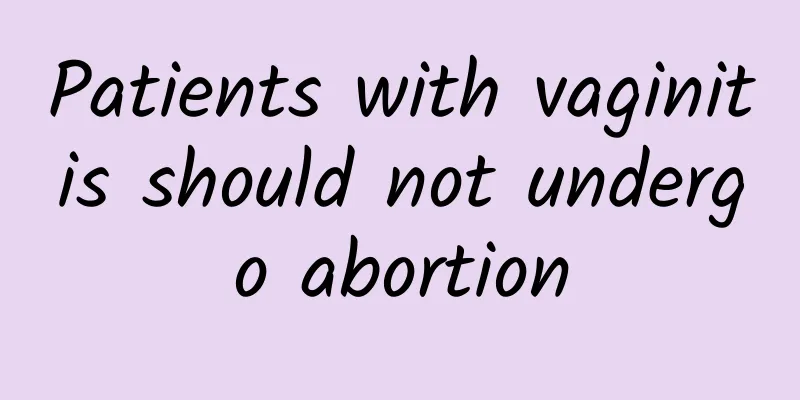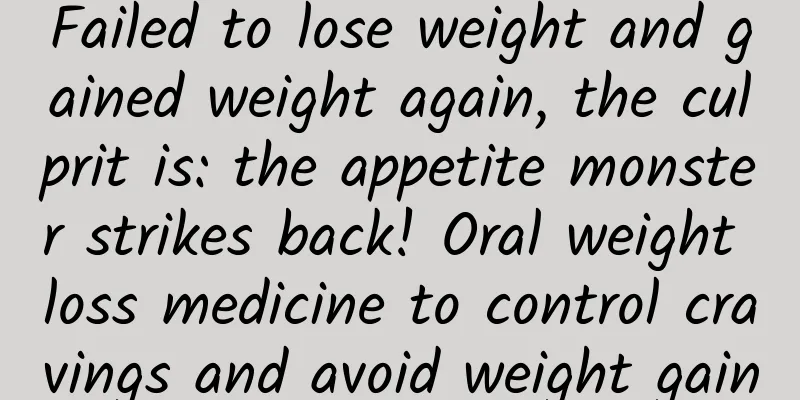12 main causes of obesity! Vitamin D deficiency not only causes obesity, but also "these" symptoms

|
Obesity is called the "silent killer"! Obesity adversely affects the body from head to toe. Obese people are at higher risk of heart disease, diabetes, high blood pressure, dyslipidemia, lung and liver disease, joint problems, polycystic ovary disease, infertility, gout, etc. Obesity can lead to a decreased quality of life and is associated with many mental health issues. Pharmacist Zhao Shunrong, founding chairman of the Taiwan Preventive Health Care Association/Master of Pharmacy, said that people still do not think that obesity is a disease, so they often delay seeking treatment. In fact, obesity is like any other disease. Early treatment is the key to success. Delaying treatment is refusing treatment, which may lead to more serious consequences. 12 factors that may lead to obesityObesity is caused by many factors. Here are 12 possible causes of obesity: 1. Love snacking 2. Eating too fast 3. Overeating 4. Eating a midnight snack before bed 5. Skipping breakfast 6. Irregular meals 7. Prefer to drink beverages instead of water 8. Sitting for long periods of time and not exercising 9. Love drinking and smoking 10. Lack of sleep 11. Stress 12. Genetics We cannot modify genetic factors, however, "unhealthy diet" and "lack of exercise" are one of the main factors that lead to weight gain in people who are prone to obesity. Not following dietary guidelines A moderate and healthy diet is essential. Compared with people of normal weight, obese people are more likely to gain weight. Avoid high-calorie foods, snacks, sugary sweets and drinks, alcohol, etc. Nutritional counseling and regular follow-up can help guide patients to establish a healthier lifestyle. Lack of physical activity Physically active people are able to maintain their weight loss for longer periods of time. Inactivity and a sedentary lifestyle can lead to weight regain after weight loss, but this is something we can change. Therefore, a healthy diet and lifestyle are important components of the treatment strategy when it comes to managing obesity. Can eating small meals frequently help you lose weight? Eat right to control hunger and preserve muscleFor obese people who want to lose weight, eating small and frequent meals is not a suitable diet strategy. Pharmacist Zhao Shunrong said that current clinical research has found that eating small and frequent meals may not be beneficial for weight loss. If calories and portion sizes are not controlled, it will lead to weight gain. It is generally believed that eating small and frequent meals can help stabilize blood sugar and better control appetite. However, if the portion size is not well controlled, "frequent meals" may increase the workload of the pancreas and make it easier to gain weight. Pharmacist Zhao Shunrong said that current clinical research has found that eating small and frequent meals may not be beneficial for weight loss. If calories and portion sizes are not controlled, it will lead to weight gain. It is generally believed that eating small and frequent meals can help stabilize blood sugar and better control appetite. However, if the portion size is not well controlled, "frequent meals" may increase the workload of the pancreas and make it easier to gain weight. Dieting is doomed to fail, and weight will reboundAccording to a new study from the University of Adelaide in South Australia, the findings, published in the International Journal of Obesity, suggest that after long-term consumption of a high-fat diet, the stomach nerves that signal fullness to the brain appear to become desensitized and the stomach's nerve response does not return to normal after resuming a normal diet. This means you need to eat more food to feel the same level of fullness as healthy people. Amanda Page, associate professor in the Neuro-Gut Research Laboratory, said a hormone in the body called leptin, which is known to regulate food intake, can also change the sensitivity of nerves in the stomach that signal fullness, and under normal circumstances, leptin would stop food intake. However, in a high-fat stomach diet that leads to obesity, leptin further reduces the sensitivity of the nerves that detect fullness, and these two mechanisms combined mean that obese people need to eat more to feel full, which in turn continues their obesity cycle. And most people who diet will gain all the weight back within two years. Researchers believe this may be a key reason why most people who lose weight through dieting eventually gain it back. Why is dieting bad? Dopamine is a neurotransmitter produced in the brain that allows us to experience pleasurable feelings. Scientists used a brain scanner - functional magnetic resonance imaging (fMRI) to measure the amount of dopamine produced in the brains of non-obese and obese people, and concluded that when obese people eat the same food as non-obese people, less dopamine is produced, and therefore the sense of pleasure is lower. The reason for weight gain is that overweight people still want more food to bring happiness. Mindful eating can keep you full and prevent overeatingTry adopting the following mindful eating patterns, which will not only make you enjoy your food more, but will also help you get full faster and prevent overeating. 1. Stop everything you are doing when you eat Studies show that we’re more likely to overeat if our minds are occupied with other things while we eat, so turn off the TV, stop scrolling through social media, and stop daydreaming about the day’s events. 2. Pay attention to every part of the food Taking the time to truly experience each bite will allow you to better enjoy your dining experience. Additionally, studies show that by eating slower, you are more likely to eat less because the release of leptin into the bloodstream to signal fullness is not instantaneous. If you're eating in a hurry, the delay between leptin release and when you actually feel full can be the difference between a large number of calories. These two approaches are called "mindful eating" and can be very effective in your long-term weight loss plan. Not only will they reduce your calorie count, but you’ll actually release more dopamine and leptin in your brain. Pharmacist Zhao Shunrong reminds that the "mindful eating" model should be used as a long-term strategy to gradually lose weight in a sustainable and comfortable manner. Instead of following a crash diet that results in losing weight, feeling terrible, and quickly regaining it, think about how you’re going to feel 3 months from now, 6 months from now, 12 months from now. Try this sustainable weight loss method that helps you enjoy food more! Try it next time you eat it and notice the difference. You will become more and more proficient at these techniques, and the amount of food you need to feel full will decrease. Vitamin D deficiency may be linked to obesityPharmacist Zhao Shunrong, who holds a master's degree in pharmacy, has been studying vitamin D for more than a decade and has compiled clinical data to point out that more and more studies have found that in addition to many long-term unexplained pains, colorectal cancer, breast cancer, esophageal cancer, oral cancer, pancreatic cancer, etc., which may be related to vitamin D insufficiency or deficiency, vitamin D deficiency can also affect the reproductive capacity of men and women, the risk of epidemics and influenza, and is closely related to the cause of obesity and difficulty in losing weight. This obviously means that your body needs adequate amounts of the vitamin to maintain optimal health. Did you know that obese people need twice as much vitamin D as other people? ! Yes, it's true. Why do obese people need more vitamin D?Vitamin D is a fat-soluble vitamin that is stored in fat tissue in the body. Vitamin D levels tend to be lower in obese people because higher body fat levels cause vitamin D to be retained in excess adipose tissue, thereby lowering serum vitamin D levels. Volume dilution in body tissues is another cause of vitamin D deficiency, which is why overweight people need to consume more vitamin D. So, can increasing your vitamin D intake help you lose weight? Increasing your dietary intake of vitamin D could improve your chances of losing weight, according to a study published in the International Journal of Obesity. Vitamin D deficiency, possible consequencesPharmacist Zhao Shunrong said that the only way to determine whether vitamin D is deficient is through a blood test, and the normal value is above 30ng/mL (nanograms/milliliter). However, there are some signs and symptoms to watch out for: being prone to depression, being overweight or obese, bone pain, frequent headaches, and frequent gastrointestinal problems. *Persistent fatigue and lethargy are the first indicators of vitamin D deficiency. *Infections can often be the result of low levels of vitamin D in the body, as it is essential for a strong immune system. *Stress, anxiety and depression are also the result of vitamin D deficiency. *Vitamin D is important for bone development, so muscle and bone pain may be a sign that you don’t have enough vitamin D levels. * Kidney and liver complications have also been linked to low levels of vitamin D in the blood. Persistent fatigue and lethargy are the first indicators of vitamin D deficiency. To lose weight, you need to control calories! Calories consumed > calories taken inIn fact, the principle of "weight loss" is very simple, that is, the calories consumed by the body are greater than the calories consumed, that is, "calories consumed > calories consumed". Therefore, it is easy to imagine that the only way to lose weight is "exercise" and "diet control". In order to avoid muscle loss when losing weight, you must eat the right protein and combine it with appropriate exercise. Pharmacist Zhao Shunrong explained that protein in the diet is one of the important key nutrients in the weight loss process. It can help burn calories, make you feel fuller, and promote metabolism. Because protein stays in the stomach longer than carbohydrates, it makes you feel fuller. Combined with moderate "regular exercise", you can achieve the goal of losing weight. The secret to increasing muscle strength, in addition to normal walking, it is recommended to perform low-intensity and high-frequency muscle strength training in moderation, such as using dumbbells, elastic bands or "stick core training". Dietary strategies after weight lossWhat other precautions should be taken when eating after losing weight? Several important rules for diet after weight loss are: *The diet must consist of nutrient-dense foods. * Protein and fiber rich foods must be added to every meal. *Must stay hydrated. *Healthy eating behaviors must be encouraged, adopting a “mindful eating” approach of eating slowly and chewing well. *Must stay away from sugar and high-calorie foods. *Aerated drinks must be avoided as much as possible. *Must try to get 40-45 minutes of moderate exercise 4 to 5 times a week. * Regularly take nutritional supplements, such as vitamin D. |
Recommend
Experts remind: Ovarian cyst care is very important
Although ovarian cysts themselves will not cause ...
How to take care of uterine fibroids after surgery What should I pay attention to after uterine fibroids surgery
Uterine fibroids are a common gynecological disea...
What to eat during menstruation? Share foods suitable for menstruation
Women are very weak during their periods. If they...
Does eating spicy food increase the risk of uterine fibroids? What should people with uterine fibroids not eat?
According to traditional Chinese medicine, uterin...
Why is it easy to develop cervical cysts after miscarriage?
Why is it easy to develop cervical cysts after mi...
Six taboos to help you eliminate vaginitis
Women with vaginitis usually feel itching and bur...
What are the types of uterine fibroids? When should uterine fibroids be operated on?
Uterine fibroids are a serious gynecological dise...
Can progesterone treat amenorrhea?
Progesterone , also known as progesterone, is a p...
Let's see what tests should be done for irregular menstruation?
As more and more patients with irregular menstrua...
Experts explain how to properly arrange the diet for cervical erosion
For patients with cervical erosion, it is necessa...
Lose weight easily by eating out and choosing the right braised food can also help you lose weight
When it comes to losing weight, everyone knows th...
Dietary considerations after surgery for hyperprolactinemia
Hyperprolactinemia, also known as hyperprolactine...
How much does an abortion usually cost?
Everyone should be familiar with the word abortio...
Clinical manifestations of vulvar leukoplakia
In recent years, the disease of vulvar leukoplaki...
How does ovarian cysts affect menstruation? Will ovarian cysts affect menstruation?
Ovarian cysts are a relatively common disease amo...









